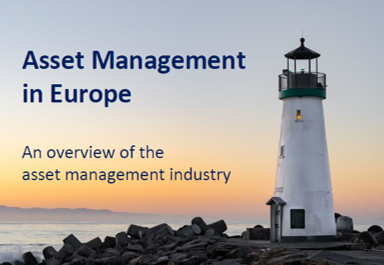Capital Markets Union
Building a Capital Markets Union (CMU) serving the needs of European citizens and businesses is as ambitious as it is essential: the effort will enable pensioners and savers to share in the upside of Europe’s economic recovery. In the process, European capital markets also become more efficient and better integrated. This long-term vision is key to financing European innovation and to supporting the transition towards a more sustainable economy.
Increasing retail investors’ participation in capital markets is an essential component for building an effective CMU. Improving access to financial and non-financial information and addressing the high data costs our industry is encountering, are also important steps towards a functioning CMU. All this, while maintaining and improving the attractiveness of the European investment management sector in today's global environment.
EFAMA prepared a list of key actions that are required to reach the CMU objectives from an investor perspective. We have also developed a specific Key Performance Indicator to measure year-on-year progress towards increasing retail participation in capital markets in each member state.
EFAMA on EC Proposal on low-carbon benchmarks and positive carbon impact benchmarks
EFAMA comments European Commission's Proposal on disclosures relating to sustainable investments
EFAMA comments European Commission's Taxonomy Proposal (Sustainable Finance Package)
Asset managers support Letta report emphasis on furthering the single market and mobilising private capital
Former Italian prime minister Enrico Letta has released today his report on the future of the Single Market. Together with the recent statement of the Eurogroup in inclusive format on the future of CMU, and the upcoming report of Mario Draghi, there is increasing emphasis on EU competitiveness and the need to make urgent progress towards achieving a well-functioning Capital Markets Union to finance Europe’s necessary transitions.
EU policymakers need to focus on competitiveness and completing the Capital Markets Union in order to fund the triple transitions
EFAMA has released its policy recommendations to unlock private investment in Europe
Unlocking private investment to fund Europe's triple transitions
EFAMA’s publication lays out the asset management sector’s policy priorities for the next five years, building on the in-depth expertise of our members. This includes practical recommendations for keeping Europe competitive and developing deeper, more integrated and liquid capital markets in Europe.
The recommendations focus around four main objectives:
Annual Review June 2019-June 2020
"It gives me great pleasure to provide you with an overview of our activities since our Annual General Meeting in Paris last year. While we were very much looking forward to hosting you all in Brussels this week, the current crisis and associated travel restrictions has forced us to improvise and turn our meeting into a virtual AGM.
EFAMA Market Insights | Issue #1 | Net outflows from UCITS in March 2020 - Industry weathers Covid-19 crisis
The Covid-19 pandemic significantly impacted financial markets. Stock markets across the world suffered a steep decline driven by lower economic growth and corporate profits. As anticipated, the crisis caused substantial net outflows from UCITS in March (EUR 313 billion). However, as a percentage of net assets, these outflows were no higher than in October 2008, at the height of the global financial crisis (2.9%).
Asset Management Report 2019
The EFAMA Asset Management in Europe report aims at providing facts and figures to gain a better understanding of the role of the European asset management industry. It takes a different approach from that of the other EFAMA research reports, on two grounds. Firstly, this report does not focus exclusively on investment funds, but it also analyses the assets that are managed by asset managers under the form of discretionary mandates. Secondly, the report focuses on the countries where the investment fund assets are managed rather than on the countries in which the funds are domiciled.
































